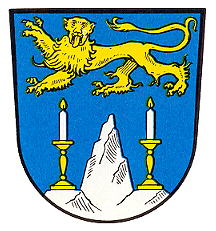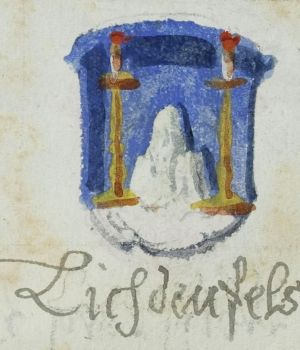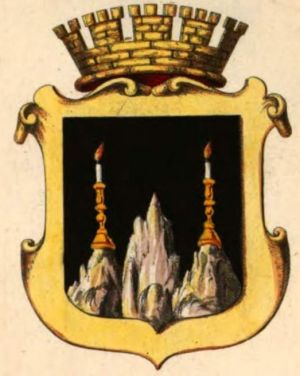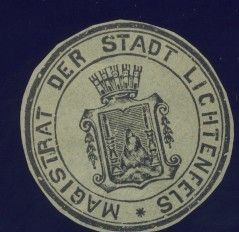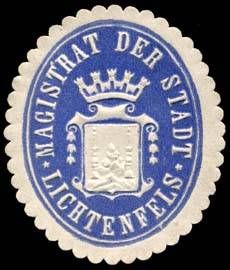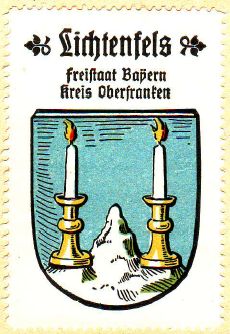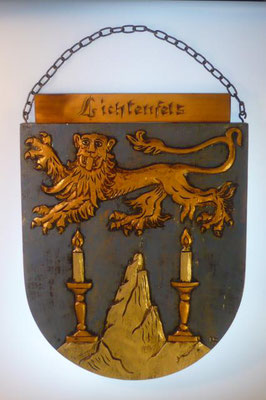Lichtenfels (Oberfranken)
LICHTENFELS
State : Bayern
District (Kreis) : Lichtenfels
Additions : 1929 Burgberg; 1959 Oberwallenstadt; 1972 Weingarten; 1974 Klosterlangheim, Mistelfeld; 1975 Kösten, Mönchkröttendorf, Stetten; 1978 Buch am Forst, Isling, Köttel, Lahm, Oberlangheim, Reundorf, Roth, Rothmannsthal, Schney, Seubelsdorf, Trieb
| German | blazon wanted |
| English | blazon wanted |
Origin/meaning
The oldest seal of the city dates from 1300 and already showed the two candles and a mountain, which are a canting symbol (lights-mountain). All later seals and images until 1962 show the same composition of candles and mountain, see the image of Hupp (1920s) below.
In 1962 the lion was added. It is derived from the arms of the Counts of Andechs-Meranien, who granted the city rights in 1231.
| The arms in a 16th century manuscript |
The arms by Tyroff (1835) |
| Seal of the city from around 1900. |
Seal of the city from around 1900. |
| The arms by Hupp in the Kaffee Hag albums +/- 1925 |
The arms in the Deutsches Wappenmuseum |
Literature: Stadler, 1964-1971, 8 volumes; Hupp, O: Kaffee Hag albums, 1920s
